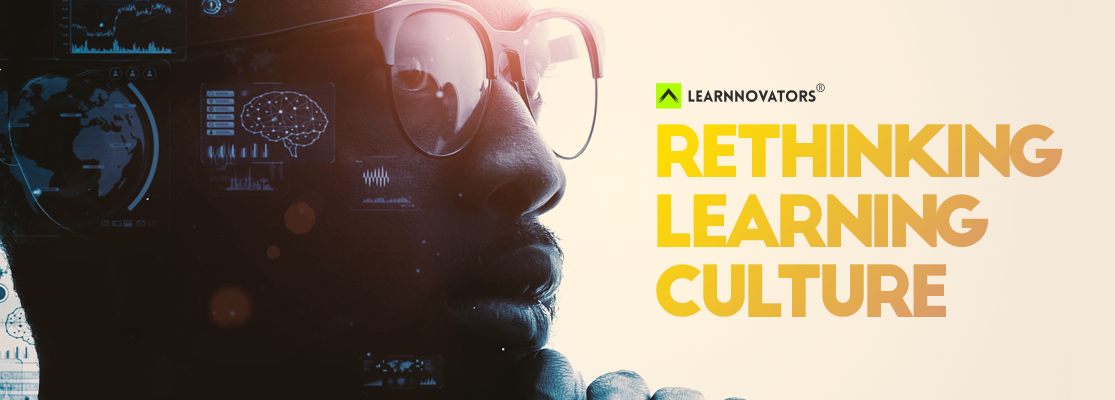When speaking of a code of conduct, we always refer to business-critical tasks, such as behavior in operational dealings with vendors, customers, competitors and colleagues. At most, we stretch our context to include discretionary spending and CSR activities.
But that’s where my argument takes root. It’s first of all a little ironic that ‘business-critical’ absolutely never includes learning…! After all, every organization now likes to describe itself as being committed to learning and improving. So what about the ethics of learning and how it is orchestrated, performed and thought of in the organization?
Or is learning amoral, absolutely removed from all ethical concerns? Emphatically not. From the curricular choices an organization makes, to the expectations it sets for employee knowledge and expertise, there should be consonance with the overall ethical identity of the organization, because all of these actions have an ethical dimension.
I’ve never heard this being discussed in L&D so I’d like to start us off.
Let’s begin by looking at the typical values that a code of conduct addresses. Here are the usual broad themes (I’ve grouped the related ideas):
- Integrity / honesty / reliability / consistency / responsibility / trustworthiness / safety / transparency
- Fairness / neutrality / impartiality
- Respect / inclusivity / embracing diversity / equal opportunity
- Leadership / responsiveness / accountability / commitment
- Quality orientation / excellence / drive to improve / deliver value
- Community orientation: team / relationships at work / company / society / world
We in training seem to ignore all of these values and their implications for the learning culture of the organization. When we speak of learning culture, we seem to always focus on just the quantum of information.
We talk about constancy of consumption (“continuous, any time learning”) and subsequently, the other half of that coin, easy access for all employees to tools for content generation.
We do not speak of quality of information, we do not speak of the quality of learning, the desirable behaviors and characteristics of learners, facilitators and teachers, or of the ethics of teaching, or of knowledge considerations.
We certainly don’t consider intellectual behaviors in this conversation, from immediate matters of content ownership and intellectual property to expectations of transparency of expertise or articulation about decision-making. There are some cognition-linked emotions that it would be fascinating (dare I say, even necessary) to include in the conversation: compassion, humility, benevolence, empathy, confusion, certainty, etc.
We do not talk about group culture and guidelines for handling contemporary challenges like unconscious bias or information curation politics, class issues in knowledge production or cultural hegemonies in global organizations.
We do not mention knowledge sharing outside of the organization, for purposes not related to profit or image building. We do not talk of contributions to industry or formal education or community education initiatives. These may be referenced in CSR activities undertaken to demonstrate the values of the company, but are never considered as an integral part of the learning culture, in the spirit of generative and generous knowledge-related activities.
We do not even speak of rethinking the way we approach formal learning within the organization, of rethinking training objectives for operational trainings to include an ethical component so that you don’t just learn what to do but also how to do something. (The anemic exception to this is in regulatory compliance, where we refer to mandated standards of behavior than the organization’s consciously embraced character and learning identity.)
It is no wonder then that we see large scale failures of ethical conduct, when we address the ethics of the organization as a watertight compartment separated from everyday operations and ‘continuous learning’. It is also completely removed from the learning culture of the organization and reduced to a random fragmented activity. (By the way, how does ‘continuous learning’ not include deeper and continuing exploration of ethical issues, discussions and arguments on ethics?! How does it happen through repetition of un-nuanced material?)
If an organization has a learning culture, and its ethical standing includes demonstrating leadership, admirable and exemplary behavior, how can ethical failures not be discussed candidly and truthfully in the company? How can incidents be hushed up? What is the learning culture around mistakes and learning from experience?
In many countries, the maturity of the legal systems in thinking about organizational conduct in regulatory compliance has far outstripped the training industry’s maturity. So many countries already recognize in the public sphere, the right to education and freedom of access to information. It seems just a matter of time before the knowledge culture and ethical aspects of employee education in an enterprise also come under scrutiny by the law.
The role of companies in the public sphere has already changed significantly the last few years. Most large companies can no longer sit out heated political debates on social systems and power any more. -We’ve seen it overwhelmingly with gender and minority rights already.
These complex conversations have already impacted and shaped the way we do business. Then how can a learning culture be anachronistically limited to awe of mass media, ignoring these ground realities? Are we finally ready to initiate these conversations and swing into action or are we going to be caught on a backfooting once again?
Written by Mridula R., Principal Learning Consultant @ Learnnovators






